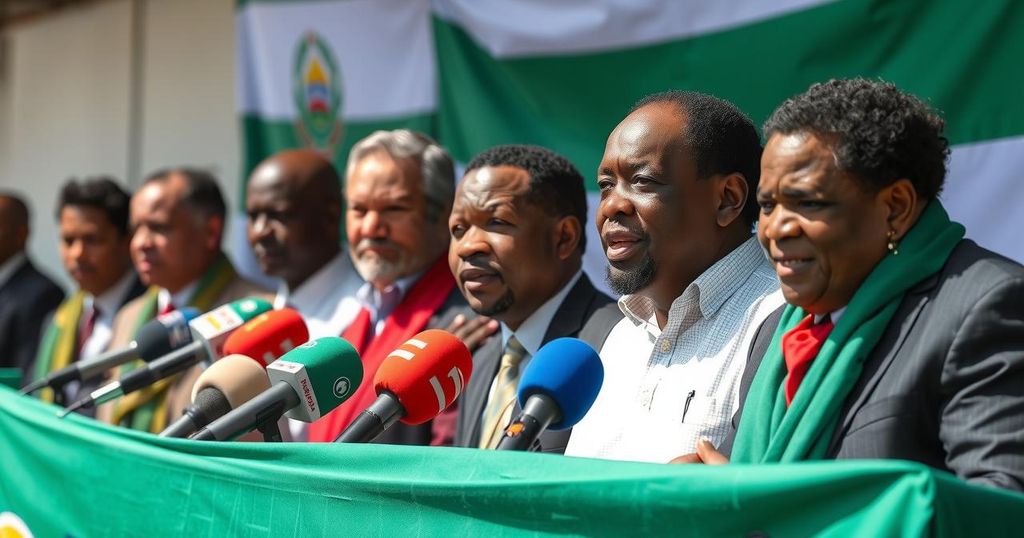World news
2024 ELECTIONS, AFRICA, AGENCE FRANCE - PRESSE, ANJOUAN, AZ, AZALI ASSOUMANI, COMO, COMOROS, DAOUD ABDALLAH MOHAMED, ELECTIONS, EUROPE, FA, GOVERNMENT, INDEPENDENT ELECTORAL COMMISSION FOR, INDIAN OCEAN, ITALY, MOHAMED, MOHELI, ORANGE PARTY, POLITICS, ST, UNITED OPPOSITION COALITION, VOTER TURNOUT
Lena Nguyen
0 Comments
Comoros Opposition Denounces Legislative Elections Amid Fraud Allegations
Daoud Abdallah Mohamed, leader of the United Opposition in Comoros, rejected the legislative election results due to allegations of widespread fraud and irregularities. Despite the ruling party winning a majority, low turnout and accusations of ballot box tampering have raised eyebrows. The opposition plans to boycott the second election round, continuing the cycle of mistrust in the electoral process.
On Monday, Daoud Abdallah Mohamed, a prominent opposition leader in Comoros, publicly denounced the results of the recent legislative elections. The elections, held on Sunday, were characterized by a significant boycott from opposition parties, who alleged widespread irregularities including ballot box stuffing and discrepancies where voting figures exceeded the number of registered voters. Mohamed, who leads the United Opposition coalition and previously served as the interior minister, asserted that such misconduct undermined the legitimacy of the electoral process.
The independent electoral commission announced that 12 candidates from the ruling Convention for the Renewal of the Comoros (CRC) party had emerged victorious, with reported voter turnout figures reaching 70 percent. However, observers noted that in Anjouan, where both President Azali Assoumani and the election minister originated, initial voter participation appeared low while ballot boxes appeared to fill unusually quickly, raising further suspicion.
With minimal competition in several districts, including Moheli, where four of five constituencies featured a single ruling party candidate, the opposition’s claims of an uncompetitive electoral environment were amplified. Refuting accusations of electoral fraud, President Assoumani remarked that it was not the first occasion on which the opposition had made such allegations and encouraged them to substantiate their claims.
As the political climate remains tense, a second round of voting is scheduled for February 16, yet Mohamed has confirmed that the United Opposition will not partake in this upcoming election.
The legislative elections in Comoros are significant as they reflect the ongoing power dynamics within the Indian Ocean nation. Historically, the Comorian political landscape has been contentious, characterized by allegations of electoral malpractice and opposition boycotts. The ruling Convention for the Renewal of the Comoros (CRC) party has maintained a dominant position since President Azali Assoumani’s ascent to power in 2016. The claims of fraud and lack of transparency signal deeper issues of trust and governance in the country, particularly in regions like Anjouan, which is known for its socio-economic challenges. The situation highlights the crucial balance between democratic processes and political integrity in Comoros.
The Comorian opposition’s rejection of the recent election results underscores the ongoing struggle for democratic legitimacy in the nation. Allegations of fraud, voter irregularities, and a perceived lack of transparency illustrate significant barriers to fair electoral practices. With the opposition deciding to forgo participation in the upcoming second round of voting, the prospect for reconciliation in the country’s political arena remains uncertain, posing serious implications for governance and representation in Comoros.
Original Source: www.barrons.com




Post Comment